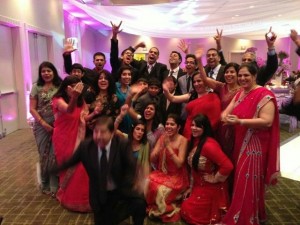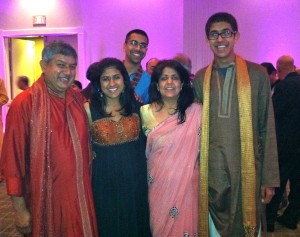Last Friday was the deadline to submit a resume for this year’s Resume Book published annually by the lovely CP&R. One of CP&R’s many wonderful resources, the Resume Book is a collection of resumes from current graduating students sent to the greater Scripps community as a networking tool. The first requirement to submit asks that your resume be a maximum of one page in length (with exceptions for science resumes). Thinking that I would just do a little trimming and send mine off easy breezy, I opened my resume and found two full pages loaded with material. Forget hacking it down to a single page– I didn’t even know where to begin deleting a word. (This suddenly reminded me of Bryn’s meme from a couple of weeks ago– check them out for some laughs if you haven’t already!). All of the information on my resume (education, skills, extracurricular activities, community service, honors and awards, work experience) seemed vital to communicate to a potential future employer. Since I have been involved in a mixed bag of very different kinds of activities, I didn’t want to cut down on breadth and risk excluding a skill that may be appealing for a particular type of position. So, of course, my next step was to waltz into CP&R and schedule an appointment for a much needed resume makeover.
In just one hour, I left with a fully transformed, ready to submit resume (thanks Leslie!!). I learnt many worthwhile tips that I wasn’t aware of before– hope some of these are helpful to others looking to clean up their resumes. One of the reasons my resume seemed so bulky/ overwhelmed with information was because I had overly detailed and lengthy descriptions after each activity. I had written explanations of the organizations, rather than focusing on conveying my personal contributions, responsibilities, and achievements within each involvement. I reworded and shortened the descriptions to make them more concise using the list of “Action Words” found in the CP&R Career Services Guide. Check it out for inspiration– super helpful!
Another major thing we did was completely restructure the formatting of my resume. Because I now have a clearer sense of the direction I am headed career wise, we used public health and social justice as a central theme around which I tied together and organized my resume. I replaced the various sections listed above with: education, public health experience, advocacy experience, and development experience, and then sorted each involvement into the most related category– this revolutionized the presentation of my resume and created a much more targeted and focused message. One piece of advice my friend recently received from a Scripps alumna was to have a common thread connecting all of the activities on your resume. This may seem close to impossible given the fact that many times we find our interests through our involvements, and not vice versa, but I think we can all be strategic about the way in which we present our experiences on a resume.
Leslie then explained that it is important to highlight the most relevant experiences specific to the opportunity for which you are applying. Employers and organizations appreciate if you have a diverse background with a wide range of skills, but they are most interested in the experiences directly linked to the position or field. This meant removing the descriptions for all activities except those under ‘public health experiences.’ As you can imagine, listing just the name, position, and time frame for all other involvements cut out a huge chunk of my length, and voila– I had a one page resume! Success.
Pop into CP&R to schedule an appointment for yourself or stop by for Drop In hours Monday-Friday from 10-4! Friends, any other resume perfecting tips you would like to divulge? I know mine always has room for improvement!


